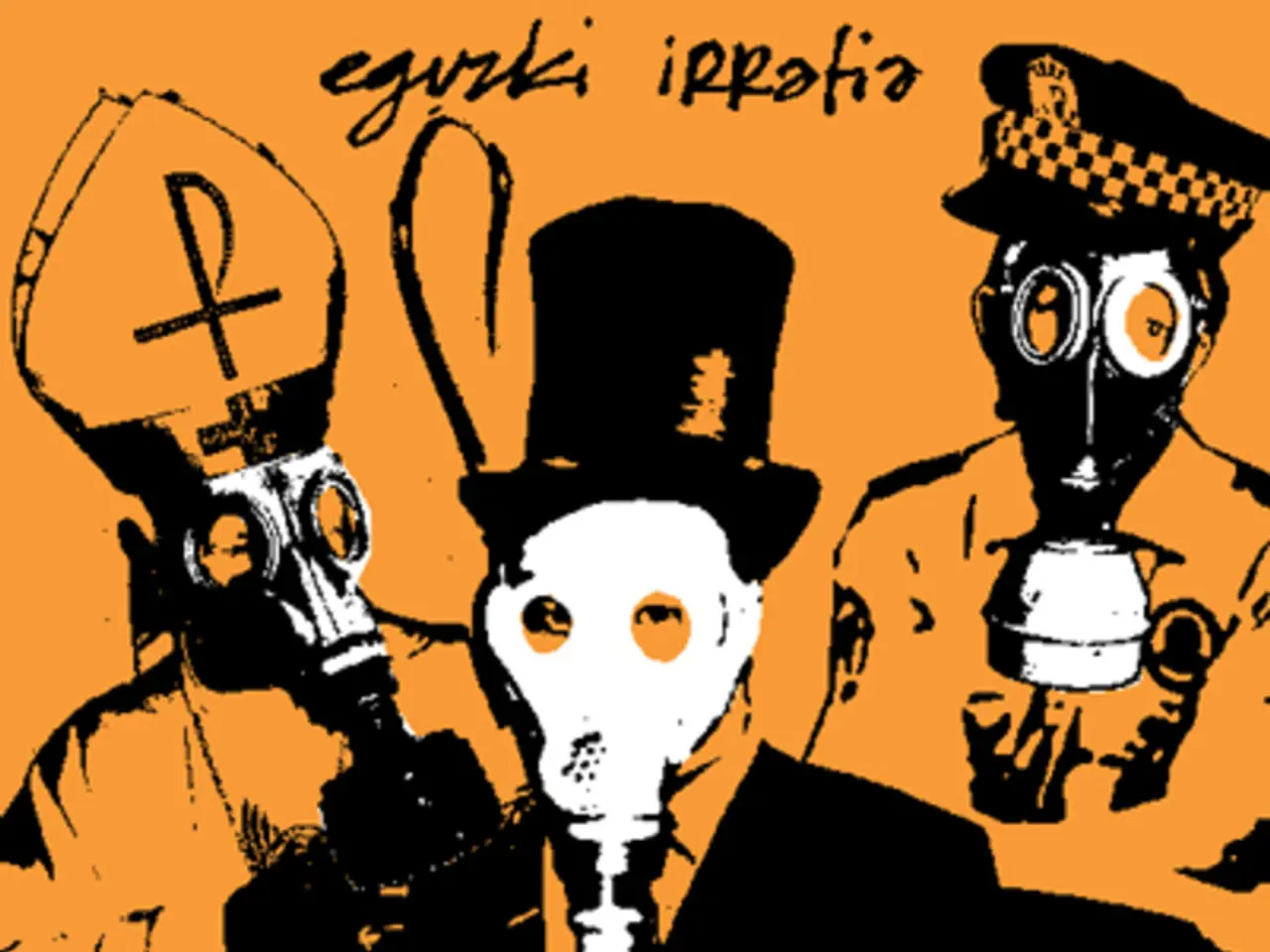Thyroid Cancer of Follicular Type: Signs, Origins, and Remedies
Follicular thyroid cancer (FTC) is a less common yet serious type of thyroid cancer, accounting for around 10-15% of all thyroid cancers. The treatment options for FTC vary depending on the stage of the disease, extent of spread, and patient health.
Treatment Approach
The main treatments for FTC include surgery, radioactive iodine (RAI) therapy, thyroid hormone therapy, external beam radiation therapy, chemotherapy, targeted therapies, and interventional radiology procedures.
Surgery, typically a thyroidectomy (removal of part or all of the thyroid gland), is usually the first-line treatment for FTC. The extent—lobectomy (part removal) versus total thyroidectomy (whole gland)—depends on tumor size, location, and spread.
Following surgery, RAI is often used to destroy any remaining thyroid tissue or microscopic disease. This is particularly effective as FTC cells usually absorb iodine. Thyroid hormone replacement is then provided to maintain normal metabolism and to suppress thyroid-stimulating hormone (TSH), which can promote tumor growth.
For more advanced stages where cancer has spread beyond the thyroid gland, external beam radiation, chemotherapy, targeted therapies, and interventional radiology procedures may be employed. These are used to target the cancer and minimize side effects.
Stages of Treatment
Early-stage FTC typically involves total thyroidectomy if the tumor is larger or shows invasiveness, while smaller or less aggressive tumors may be treated with lobectomy. Following surgery, RAI may be used if there is a higher risk of recurrence or metastasis.
Intermediate risk FTC requires total thyroidectomy, followed by postoperative RAI to ablate residual disease, and hormone therapy to suppress TSH.
Advanced or metastatic stage FTC requires a multimodal approach, including surgery if possible (including metastasectomy for isolated metastases), RAI if disease is still iodine-avid, external beam radiation or systemic therapy (chemotherapy, targeted therapies) if RAI-refractory, and interventional radiology options for certain metastases.
Living with Treatment
Treatment for FTC can lead to symptoms of an underactive thyroid, such as fatigue, constipation, depression, dry hair, skin, and nails, having slow movements and thinking, muscle aches, loss of libido, weight gain, difficulty sleeping, and more. Regular long-term follow-up is essential due to possible late recurrence.
Finding support while undergoing treatment for cancer can be important, and organizations such as CancerCare can help.
Follicular Thyroid Cancer Statistics
In 2022, there were around 43,800 new cases of thyroid cancer in the United States, with more than half of those in females. FTC accounts for a significant portion of these cases.
Types of Thyroid Cancer
While FTC is the focus of this article, it's important to note that there are other types of thyroid cancer, including papillary carcinoma (the most common type), anaplastic thyroid carcinoma (a rare type), and medullary thyroid carcinoma (a less common type). Each type has its own unique characteristics and treatment approaches.
For anyone who notices enlarged lymph nodes in the neck or a lump in or on the neck, it's crucial to consult a doctor. The symptoms of thyroid cancer can vary but can include a lump or swelling in the neck, pain in the neck, changes to the voice that do not go away, trouble breathing, trouble swallowing, and persistent coughing.
[1] American Cancer Society. (2021). Follicular Thyroid Cancer. [2] Mayo Clinic. (2021). Follicular Thyroid Cancer. [3] National Cancer Institute. (2021). Thyroid Cancer Treatment. [4] EndocrineWeb. (2021). Follicular Thyroid Cancer: Treatment and Prognosis. [5] Cancer Treatment Centers of America. (2021). Follicular Thyroid Cancer.
- Science reveals that chronic diseases like follicular thyroid cancer (FTC) require different treatment approaches, especially considering the various medical conditions associated with it, such as an underactive thyroid or mental health issues that may arise from treatment.
- Skin care becomes essential for individuals living with FTC treatment because symptoms can include dry skin, hair, and nails.
- The medical-health community acknowledges other types of thyroid cancer, including papillary carcinoma, anaplastic thyroid carcinoma, and medullary thyroid carcinoma, each needing unique treatment strategies and understanding.
- When dealing with any suspicion of thyroid cancer, consult a doctor about symptoms like an enlarged lymph node, neck pain, voice changes, difficulty breathing, swallowing, or persistent coughing, according to health-and-wellness resources like the American Cancer Society and the Mayo Clinic.




